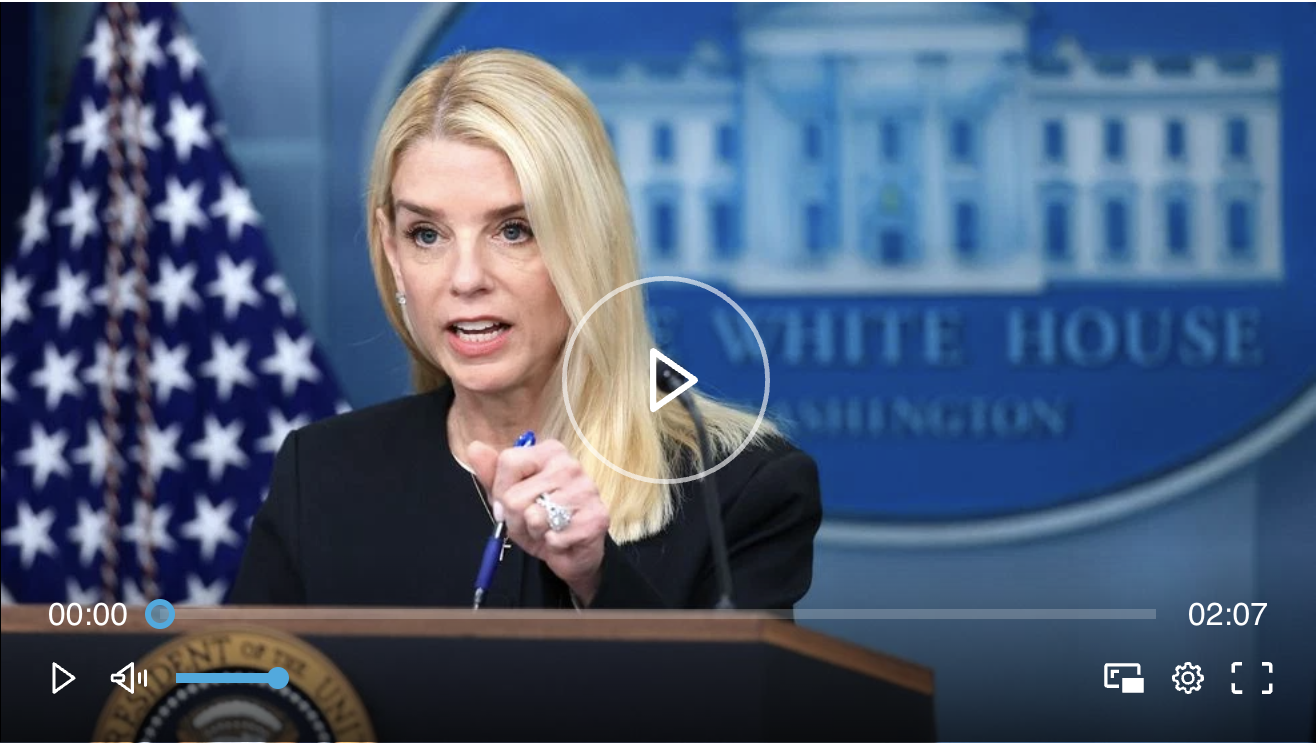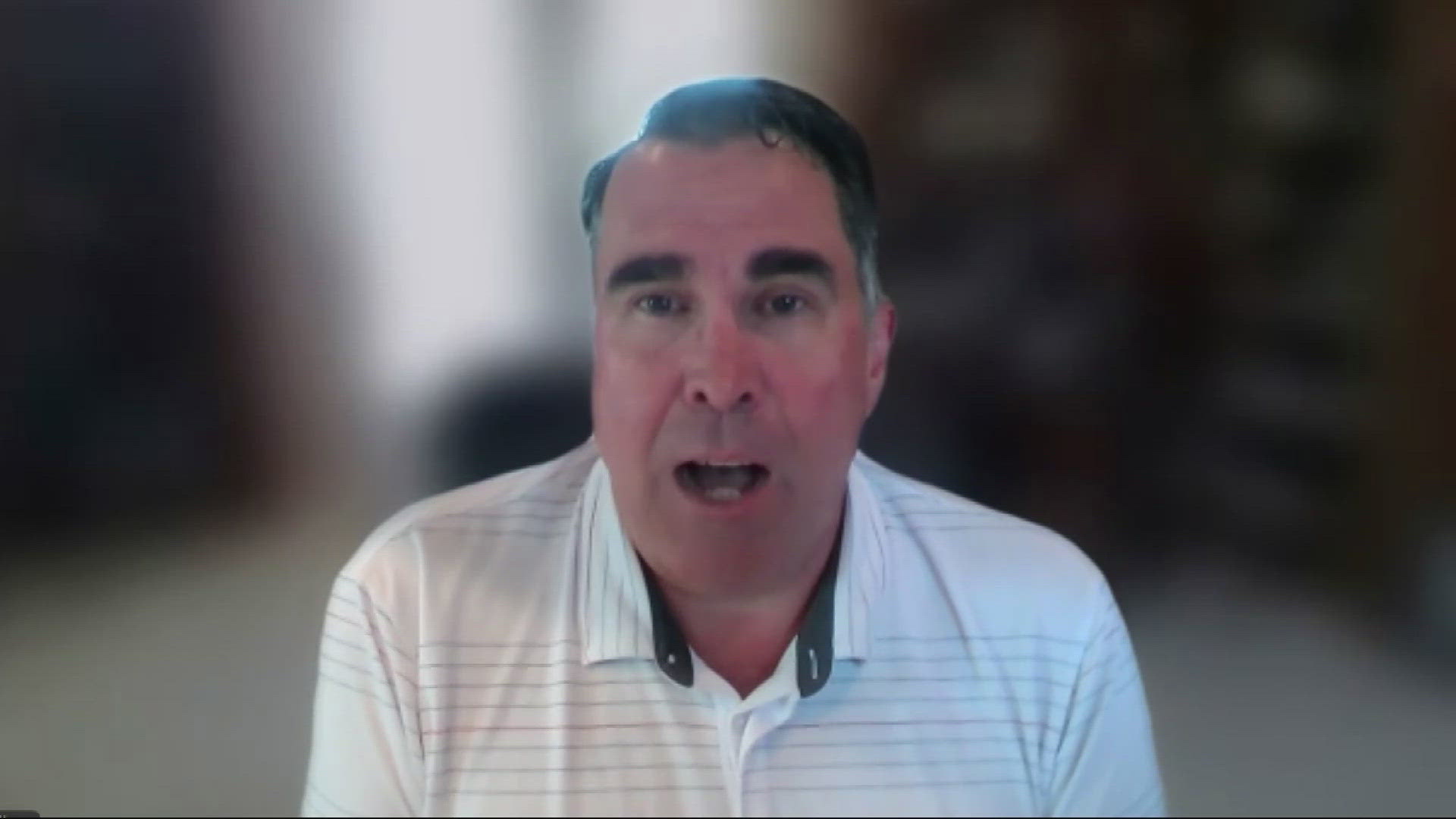SALEM, Ore. – U.S. Attorney General Pam Bondi has formally warned Oregon leaders that the state’s long-standing sanctuary policies could put them in violation of federal immigration law. In a series of letters sent this week, Bondi threatened both legal action and the withholding of federal funds if Oregon and other sanctuary jurisdictions refuse to cooperate with federal enforcement efforts.
DOJ Targets Sanctuary Jurisdictions
Bondi announced on Thursday that the Department of Justice had sent out demand letters to multiple states, counties, and cities across the nation. In a post on X (formerly Twitter), she wrote:
“Any sanctuary jurisdiction that continues to put illegal aliens ahead of American citizens can either come to the table or see us in court.”
According to the DOJ, a new list published on August 5 identifies 12 states, four counties, and 18 cities as sanctuary jurisdictions. Both Oregon and the city of Portland were specifically mentioned.
Bondi later appeared on Fox News, where she confirmed that 32 mayors across the country received warning letters, though it remains unclear who all of the recipients were.
“I just sent sanctuary city letters to 32 mayors around the country and multiple governors, saying, ‘You better be abiding by our federal policies and with our federal law enforcement, because if you aren’t, we’re going to come after you,’” Bondi said.
Arguments in the Letter
The attorney general’s letter claims that Congress requires states and municipalities to cooperate with federal immigration enforcement and that sanctuary policies interfere with this obligation.
“For too long, so-called sanctuary jurisdiction policies have undermined this necessary cooperation and obstructed federal immigration enforcement, giving aliens cover to perpetrate crimes in our communities and evade the immigration consequences that federal law requires,” the letter reads.
It also warns that individual officials could face personal legal consequences if they use their authority to block or interfere with federal immigration operations.
“Individuals operating under the color of law, using their official position to obstruct federal immigration enforcement efforts and facilitating or inducing illegal immigration may be subject to criminal charges,” the DOJ warned.
Oregon’s Sanctuary Legacy
Oregon has a unique place in the national sanctuary debate. It became the first state in the nation to pass a sanctuary law in 1987, when lawmakers approved restrictions preventing state and local law enforcement from using resources to enforce federal immigration laws.
That policy was later expanded by the Sanctuary Promise Act of 2021, which:
-
Prohibited local governments from entering into immigration detention agreements.
-
Created a public reporting and enforcement system for violations.
-
Granted individuals the right to sue state agencies that unlawfully cooperate with federal immigration enforcement.
In addition, in 2017, the Portland City Council formally declared Portland a sanctuary city. Under that designation, city employees—including police—are prohibited from helping federal immigration agencies like ICE except in cases expressly required by federal law.
Oregon Leaders Push Back
Governor Tina Kotek responded swiftly to Bondi’s warning, saying Oregon would defend its right to self-governance.
“I will fight for the safety and prosperity of every Oregonian, from recent immigrants to people who have been here for generations. Threats like this undermine our values and our right to govern ourselves. We will not be bullied into doing the federal government’s job of immigration enforcement,” Kotek said in a statement to KATU News.
A spokesperson for the governor added that the state’s sanctuary law—passed with bipartisan support in 1987 and expanded in 2021—does not obstruct federal authorities from carrying out their own operations.
Portland Mayor Keith Wilson’s office declined to comment directly on the letter, though city leaders have consistently defended sanctuary protections as essential to public trust and safety.
Ongoing Legal Battles
Bondi’s move is the latest chapter in a long-running legal conflict between federal officials and sanctuary jurisdictions.
Currently, Multnomah County and the cities of Portland, Bend, and Wilsonville are suing the Trump administration over executive orders that aim to defund local governments refusing to abandon sanctuary policies.
Earlier this year, a federal judge issued a preliminary injunction preventing the administration from freezing federal funds to Portland and 15 other jurisdictions while the lawsuit proceeds.
Meanwhile, Oregon Attorney General Dan Rayfield has filed several separate lawsuits challenging Trump administration policies, including:
-
A suit opposing the executive order that seeks to end birthright citizenship.
-
A challenge to federal transportation policy changes tying infrastructure funding to immigration enforcement cooperation.
-
Additional suits opposing federal attempts to strip funding from healthcare providers like Planned Parenthood.
What Comes Next
With the DOJ’s demand letters now issued, the threat of litigation looms. Federal officials could seek to cut funding streams for Oregon and Portland or pursue criminal charges against state and local officials deemed to be obstructing immigration enforcement.
At the same time, state leaders have made clear they intend to resist federal pressure. Oregon’s sanctuary protections remain among the most expansive in the nation, and immigrant rights advocates say they will continue to fight to uphold them.
Community groups have already begun mobilizing, warning that a rollback of sanctuary protections would erode trust between immigrant communities and local police, making neighborhoods less safe overall.
Conclusion
Attorney General Pam Bondi’s hardline warning has reignited the national debate over sanctuary jurisdictions, placing Oregon once again at the center of the clash between federal authority and local autonomy.
While the DOJ insists that cooperation with immigration enforcement is a congressional mandate, Oregon officials argue that their decades-old sanctuary policies protect public safety and reflect the values of their residents.
With lawsuits already in motion and new threats from Washington, the conflict is likely to intensify in the months ahead. For now, Oregon leaders are signaling they have no plans to back down.

















Leave a Reply